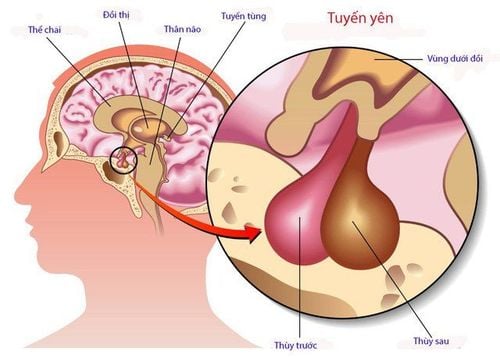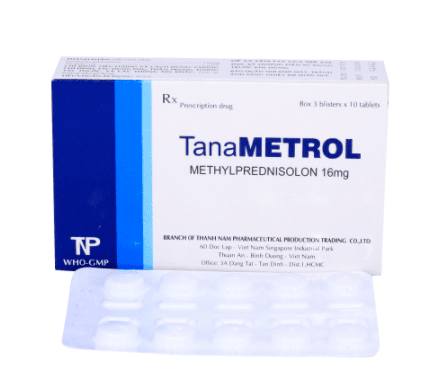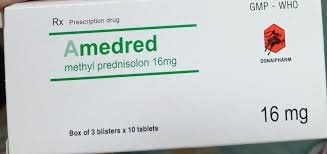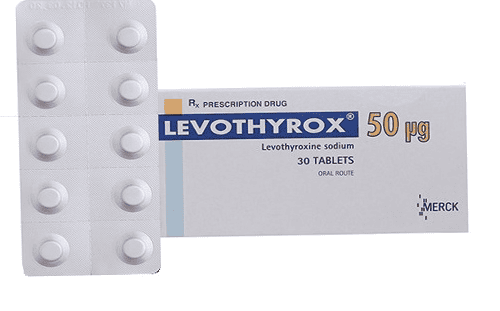This is an automatically translated article.
The endocrine system plays an important role in helping many parts of the body function properly. Endocrine disorders will directly affect the balance of the whole system.1. Causes of endocrine disorders
The endocrine system is a network of glands that produce and release hormones that help control many important body functions, including providing energy to cells and organs. The endocrine system affects heart, bone and tissue development, fertility, risk of developing diabetes, thyroid disease, growth disorders, sexual dysfunction, and a variety of disorders. related to other hormones.Causes of endocrine disorders are generally grouped into two categories:
Endocrine diseases caused when a gland produces too much or too little endocrine hormone, known as a hormone imbalance. Endocrine disease is caused by the growth of lesions (such as nodules or tumors) in the endocrine system, which may or may not affect hormone levels. The endocrine feedback system helps control the balance of hormones in the blood. If your body has too much or too little of a certain hormone, the feedback system signals to the appropriate gland or glands to correct the problem.
Hormonal imbalances can occur if this feedback system has trouble keeping the right levels of hormones in the blood or if the body doesn't remove them from the blood properly.
Increased or decreased levels of endocrine hormones can be caused by:
A problem with the endocrine feedback system Disease Deficiency of one gland to stimulate another gland to release hormones (eg, a problem with hypothalamus can disrupt hormone production in the pituitary gland).

Tuyến yên
An inherited disorder, such as multiple endocrine neoplasia (MEN) or congenital hypothyroidism. Infection Injury to an endocrine gland Tumor of an endocrine gland. Most endocrine tumors and nodules (tumors) are noncancerous. They usually do not spread to other parts of the body. However, a tumor or nodule on the gland can interfere with the gland's hormone production.
2. Types of endocrine disorders
There are different types of endocrine disorders. Diabetes is the most commonly diagnosed endocrine disorder. Other endocrine disorders include:
Adrenal insufficiency : The adrenal glands secrete too little of the hormone cortisol and sometimes, aldosterone. Symptoms include fatigue, upset stomach, dehydration, and skin changes. Addison's disease is a type of adrenal insufficiency. Overproduction of pituitary hormones leads to overactive adrenal glands. Cushing's disease: Cushing's disease. Overproduction of pituitary hormones leads to overactive adrenal glands. A similar condition called Cushing's syndrome can occur in people, especially children, who take the drug Gigantism (acromegaly) and other growth hormone problems: If the pituitary gland produces too much hormone A child's growth, bones, and body parts may develop abnormally quickly. If growth hormone levels are too low, a child may stop growing in height. Hyperthyroidism: The thyroid gland produces too much thyroid hormone, resulting in weight loss, rapid heartbeat, sweating, and nervousness. The most common cause for an overactive thyroid is an autoimmune disorder called Grave's disease. Hypothyroidism: The thyroid gland does not produce enough thyroid hormone, leading to fatigue, constipation, dry skin, and depression. An underactive thyroid gland can cause stunted growth in children. Some types of hypothyroidism are present at birth. Hypopituitarism. The pituitary gland secretes little or no hormone. It can be caused by a number of different diseases. Multiple endocrine neoplasia I and II (MEN I and MEN II): These rare genetic conditions are passed down through families. They cause tumors of the parathyroid glands, adrenal glands and thyroid gland, leading to overproduction of hormones. Polycystic ovary syndrome (PCOS). PCOS is the leading cause of infertility. Precocious Puberty: Abnormally early puberty occurs when the glands tell the body to release sex hormones too early in life.
3. Symptoms of endocrine disorders

Khám bệnh sớm nhất để tìm ra triệu chứng rối loạn nội tiết
Symptoms of endocrine disorders vary widely and depend on the specific gland involved. However, most endocrinologists complain of fatigue and weakness.
Examining hormone disorders where safe, fast and accurate is a problem that causes many women headaches. Before countless private hospitals and clinics, it is necessary to find out and choose for yourself a reputable facility, with a synchronous equipment system, a team of highly skilled doctors, nurses, technicians, experienced.
Vinmec International General Hospital is a medical facility that not only meets these requirements, but also has outstanding advantages in service quality, professional and dedicated patient care, and always strives for the goal. The goal is to bring the highest satisfaction to customers when visiting Vinmec.
Please dial HOTLINE for more information or register for an appointment HERE. Download MyVinmec app to make appointments faster and to manage your bookings easily.
Article reference source: webmd.com












